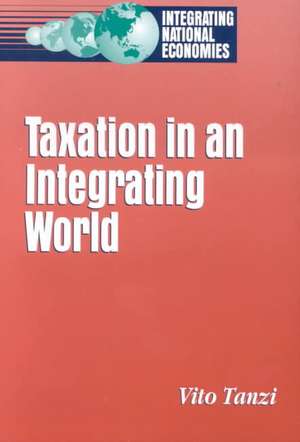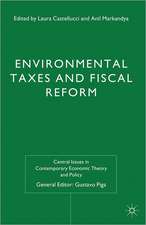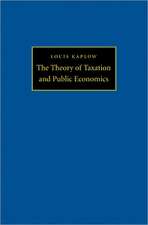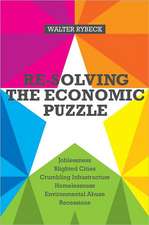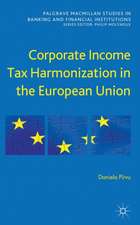Taxation in an Integrating World
Autor Vito Tanzien Limba Engleză Paperback – dec 1994
Tanzi explores how foreign taxes on repatriated income should be treated; how profits, sales, and ownership of property should be allocated among countries; and to what degree various taxes should be coordinated.
As global markets for goods, services and financial assets have become increasingly integrated, national governments no longer have as much control over economic markets. With the completion of the Uruguay Round of the GATT talks, the world economy has entered a fresh phase requiring different rules and different levels of international cooperation. Policies once thought to be entirely domestic and appropriately determined by national political institutions, are now subject to international constraints. Cogent analysis of this deeper integration of the world economy, and guidelines for government policies, are urgent priorities. This series aims to meet these needs over a range of 21 books by some of the world's leading economists, political scientists, foreign policy specialists and government officials.
A volume of Brookings' Integrating National Economies Series
As global markets for goods, services and financial assets have become increasingly integrated, national governments no longer have as much control over economic markets. With the completion of the Uruguay Round of the GATT talks, the world economy has entered a fresh phase requiring different rules and different levels of international cooperation. Policies once thought to be entirely domestic and appropriately determined by national political institutions, are now subject to international constraints. Cogent analysis of this deeper integration of the world economy, and guidelines for government policies, are urgent priorities. This series aims to meet these needs over a range of 21 books by some of the world's leading economists, political scientists, foreign policy specialists and government officials.
A volume of Brookings' Integrating National Economies Series
Preț: 181.09 lei
Nou
Puncte Express: 272
Preț estimativ în valută:
34.66€ • 36.05$ • 29.05£
34.66€ • 36.05$ • 29.05£
Carte tipărită la comandă
Livrare economică 14-28 martie
Preluare comenzi: 021 569.72.76
Specificații
ISBN-13: 9780815782971
ISBN-10: 0815782977
Pagini: 194
Dimensiuni: 152 x 229 x 14 mm
Greutate: 0.27 kg
Ediția:New.
Editura: Brookings Institution Press
Colecția Brookings Institution Press
ISBN-10: 0815782977
Pagini: 194
Dimensiuni: 152 x 229 x 14 mm
Greutate: 0.27 kg
Ediția:New.
Editura: Brookings Institution Press
Colecția Brookings Institution Press
Notă biografică
Vito Tanzi is director of the Fiscal Affairs Department of the International Monetary Fund.
Descriere
Tanzi explores how foreign taxes on repatriated income should be treated; how profits, sales, and ownership of property should be allocated among countries; and to what degree various taxes should be coordinated.
As global markets for goods, services and financial assets have become increasingly integrated, national governments no longer have as much control over economic markets. With the completion of the Uruguay Round of the GATT talks, the world economy has entered a fresh phase requiring different rules and different levels of international cooperation. Policies once thought to be entirely domestic and appropriately determined by national political institutions, are now subject to international constraints. Cogent analysis of this deeper integration of the world economy, and guidelines for government policies, are urgent priorities. This series aims to meet these needs over a range of 21 books by some of the world's leading economists, political scientists, foreign policy specialists and government officials.
A volume of Brookings' Integrating National Economies Series
As global markets for goods, services and financial assets have become increasingly integrated, national governments no longer have as much control over economic markets. With the completion of the Uruguay Round of the GATT talks, the world economy has entered a fresh phase requiring different rules and different levels of international cooperation. Policies once thought to be entirely domestic and appropriately determined by national political institutions, are now subject to international constraints. Cogent analysis of this deeper integration of the world economy, and guidelines for government policies, are urgent priorities. This series aims to meet these needs over a range of 21 books by some of the world's leading economists, political scientists, foreign policy specialists and government officials.
A volume of Brookings' Integrating National Economies Series
